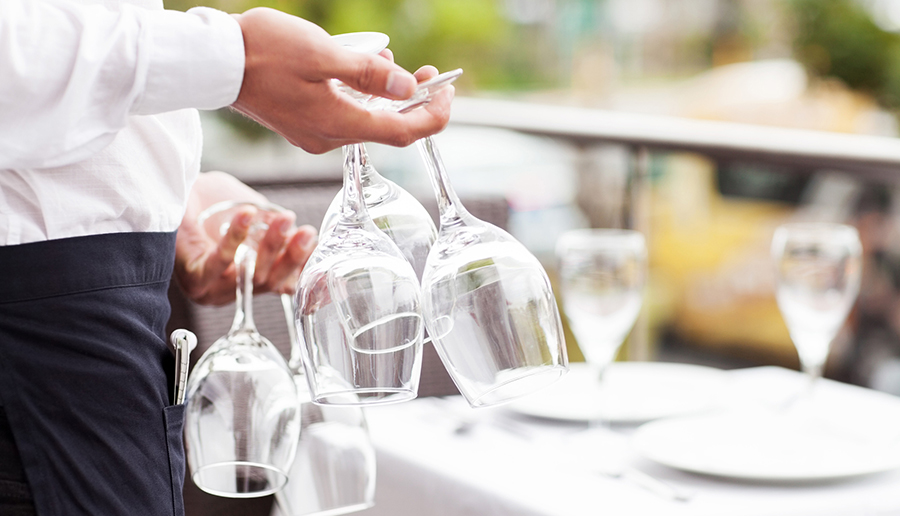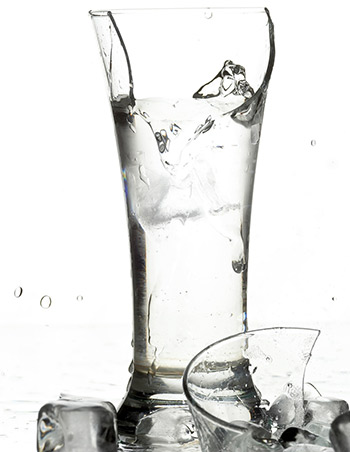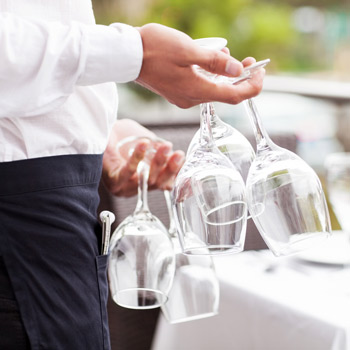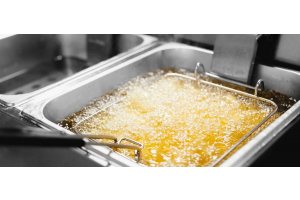
Why Glassware Breaks and How to Avoid It
 Do you know the No. 1 reason glassware breaks?
Do you know the No. 1 reason glassware breaks?
Being dropped? NOPE
Clanking against another object? NO, but close.
The answer? ... not having enough glassware.
The most common reason for glass shrinkage is thermal shock – the result of hot glasses being filled with a cold drink, or cold glasses being put into hot water. Glassware should be allowed time to revert to ambient temperature.
 Let Them Cool Down
Let Them Cool Down
Glasses must be allowed to cool down after dishwashing, before using them again. When a glass is removed from a dishwasher and immediately put into use for an iced tea or a cold beer, the thermal shock damages the molecular structure of the glass.
Too few glasses in service reduces the time required for the temperature of each glass to even out before they go back into service. When glassware expands and contracts with heat and temperature changes, it suffers from blows and will someday fail.
The sham (the base of the glass) is usually thicker than the side walls. The time it takes for the temperature of a glass to heat up (or cool down) is different depending on thickness. The stress point is where the thicker glass meets the thinner glass. In this case at the sham (base). Solution - top up your glassware so you have plenty!
Every Clank Adds Up
The second most likely reason glassware breaks is in the handling. Each little bit of contact on a glass adds up and eventually leads it to break. This can come from stacking glasses that technically shouldn’t be stacked, clanking them together or clanking a beer glass on the tap.
Many times restaurant owners advise their staff to take care with glassware - not to stack (if glassware isn’t stackable), clank, etc. However, when things get hectic, employees just do whatever they can to get things done quickly.
Tips For Moving Forward
To help prolong the life of your glassware, Southern Hospitality suggests following these guidelines:
- Have adequate backup supply of glass for rush periods to avoid thermal shock.
- Never place recently washed, hot glasses into service. Let glass stand long enough to reach room temperature.
- Let a cold glass return to room temperature before putting it into the dishwasher.
- Sort all items in bus boxes. Do not stack glasses on top of plates or bowls.
- Always use ice scoops. Never scoop ice with a glass.
- Use correct glass racks for stems and tumblers.
- Avoid glass contact with beer tap.
- Never put cutlery into glass.
- Never stack glasses.
- Never pick up glasses in bouquets (grabbing multiple glasses at once by reaching into the tops of the glasses).
- Always carry glasses by their bases or stems.
Southern Hospitality has a wide selection of quality brand glasses, platters and bowls in our glassware range.





